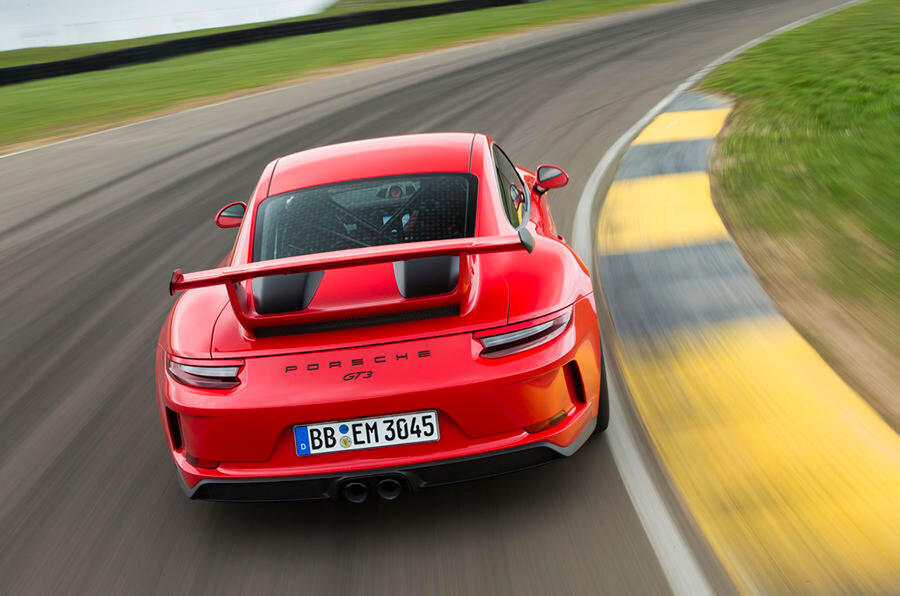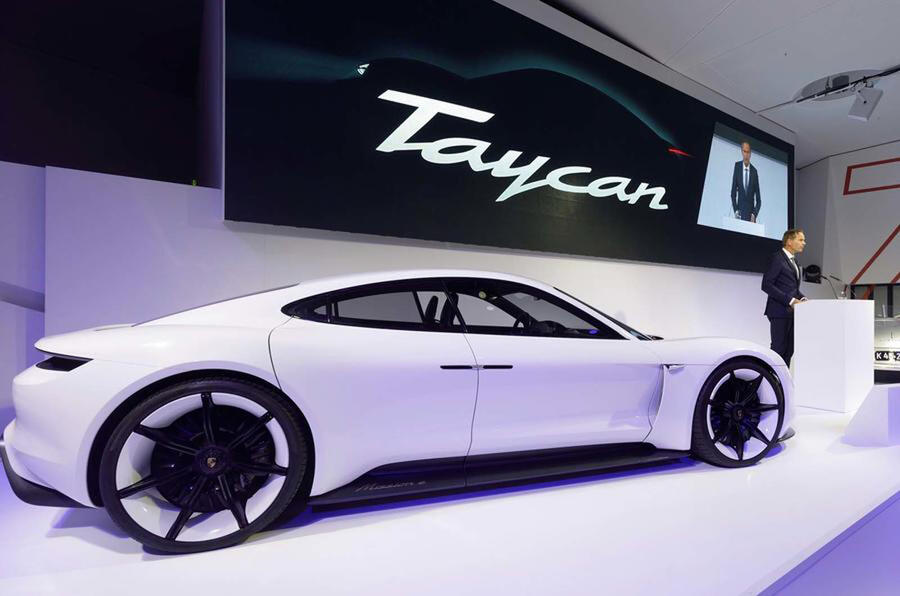Next-generation Porsche 911 GT3 to display innovation but retain key features

Eighth-generation Porsche 911 will likely receive GT treatment in 2020Track-prepared 911 will receive suspension update but remain naturally aspirated and rear-wheel-drive
The next Porsche 911 GT3 will be innovative with its suspension system but retain rear-wheel drive and most likely a naturally aspirated engine without any hybrid assistance, according to Porsche GT boss Frank Walliser.
Speaking at the Los Angeles motor show, where the new 992-generation 911 has been revealed, Walliser said that his department “has some really cool ideas on the GT side for suspension". "There’s more potential again, and it will be very much a GT3”, he said.

The next GT3 will arrive around a year after the launch of the standard 911, meaning a 2020 on-sale date is likely. Walliser hinted that it would retain a naturally aspirated engine and not adopt four-wheel drive, giving Porsche a key point of difference still when rivals have gone with one or both of those technologies.
“We’ve discussed four-wheel drive, but with a rear-engined concept it has a different impact than on a front-engined or mid-engined car,” said Walliser.
New Porsche 911: eighth-generation sports car revealed
“Part of the GT cars is that they’re raw, they’re lightweight; four-wheel drive gives you something in the wet but adds 50kg, and you lose some of the fuel capacity of our 90-litre tank.

“We’ve discussed but come to the conclusion two-wheel drive on the 911 layout is best. It can handle the power, no problem, with the chassis and tyre technology all helping.”
Another topic of discussion at GT has been hybrid technology for the 911, but the conversation “has not gone from the tea kitchen to meeting rooms” yet.
“With the performance hybrid knowledge we have, what will the future GT car be like?” Walliser said. “With a GT car, it’s really simplified as giving perfect feedback and a very light design. It’s more than engine power; it’s other refinements that make a good car.

“It’s in a niche market, but it’s a big niche, and we have an asset that we don’t want to give up.”
To that end, hybrid power remains a long way off, but don’t expect to see a turbocharged GT3, either, Walliser hinted, contrary to the claims of some. “Turbo adds another 40kg, a hybrid more so,” said Walliser.
“Normally aspirated and hybrid fits together very, very well. The 918 Spyder was hybrid and normally aspirated. It’s the most emotional thing we have, and we have to stay emotional.”
A manual gearbox is also set to be retained, after it was retuned to the Mk2 version of the 991 GT3. Around 25% of all GT3s are sold with that option and as many as 75% in the US.

Walliser also believes that the upcoming Taycan electric car has more in common with Porsche’s sports cars than its saloon and SUV models, opening the possibility of a GT version one day. He’s also part of the wider R&D team at Porsche and has driven development cars. “In doing so, I think it is very, very close to the sports cars, closer than I was expecting,” he said.
However, the GT division has no plans yet at present to develop a version of the Taycan.
Read more
Porsche readying electric Taycan for 2019 reveal
Comments
Post a Comment